





Organism dehydration
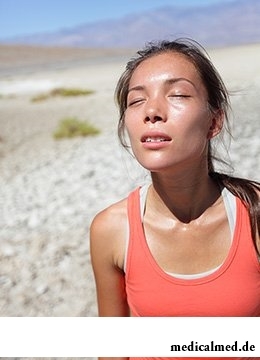 Water is the second for importance after oxygen the substance necessary for chemical and exchange processes in a human body. For this reason dehydration of an organism can provoke developing of various diseases and pathologies. On this background there is a development of various endocrine, cardiovascular, muscular and mental diseases.
Water is the second for importance after oxygen the substance necessary for chemical and exchange processes in a human body. For this reason dehydration of an organism can provoke developing of various diseases and pathologies. On this background there is a development of various endocrine, cardiovascular, muscular and mental diseases.
Organism dehydration reasons
Organism dehydration first of all is caused by exceeding of removal of water from it in comparison with its receipt. Shortage of water provokes emergence of the most different diseases. For example, water greases joints, participates in processes of digestion and breath as lungs of the person need continuous moistening to exempt blood from carbon dioxide and to oxygenate it.
Generally dehydration of an organism is the result of dryness of air which comes to lungs. The strengthened mocheotdeleniye which means considerable loss not only liquids, but also chloride sodium that leads to disturbances of a water salt metabolism happens the first reaction to it.
The blood which lost a necessary amount of water decreases in volume and begins to circulate more slowly that leads to excessive loads of heart. Thus, the organism loses ability to get rid of excess heat in hot conditions and to distribute it – in cold time.
It is established that the organism in days needs about 3 l of liquid for maintenance of a water balance, and in hot season this quantity increases. Therefore its shortcoming can provoke organism dehydration. If air temperature exceeds +35 °C, the body of the person begins to heat up, especially at any exercise stress. Maintenance of normal temperature and disposal of excesses of heat is reached by means of sweating. During this process of people loses a lot of liquid which should be recovered. If resuming of necessary amount of moisture does not happen, such losses result in its deficit.
Act as the main reasons for shortage of water in a human body:
- Intensive sweating;
- The raised mocheotdeleniye;
- Severe nausea and vomiting;
- Acute diarrhea;
- The insufficient use of liquid provoked by loss of appetite or vomiting.
Organism dehydration symptoms
The first symptom of dehydration of an organism is, naturally, the strengthened feeling of thirst, however, it not at all is shown from the very beginning of this pathological process. The most sure sign of its existence it is possible to call discoloration and amounts of urine: if its volume considerably decreased, and color became dark yellow, it testifies to shortage of liquid in a human body and need to fill it.
Besides, sure signs of dehydration of an organism are strong sweating at high temperatures and exercise stresses, dark circles under eyes, noticeable decrease of the activity, overfatigue and various disturbances in work of sense bodys.
It is known that deficit of liquid first of all makes negative impact on a brain as it for 85% consists of water. In the conditions of its shortage development of energy in a brain sharply decreases that strongly is reflected in sense bodys. For this reason it is necessary to distinguish from symptoms of dehydration of an organism and such as:
- Irritability and concern;
- Despondency and depression;
- Weakening of sexual desire;
- Weight in the head and headaches;
- Food addictions, thirst for alcohol, smoking and drugs.
All these symptoms of dehydration of an organism can testify to an initial stage of a depression which can provoke development of chronic fatigue in the person. According to some specialists, shortage of water in brain fabrics is the direct reason of the continuous social stress which is followed by feeling of uncertainty in itself, fear, concern and other emotional problems.
The most serious symptoms of dehydration of an organism which develop if the necessary amount of liquid is not recovered are:
- General weakness;
- The confusion of consciousness leading to faints;
- Dullness and flabbiness of integuments;
- Spasms;
- Tachycardia.
These indicators of a lack of water disregarded quite often lead to such complications as injury of kidneys, a depressed case and even by a lethal outcome.
Treatment of dehydration of an organism
Specialists note that it is simpler to prevent dehydration of an organism, than to treat. Therefore, irrespective of the level of activity and the state of health, it is necessary to use the maximum quantity of liquid during the day. Small children and people of advanced age first of all enter into risk group, especially at attacks of nausea and vomiting, diarrhea and temperature increase.
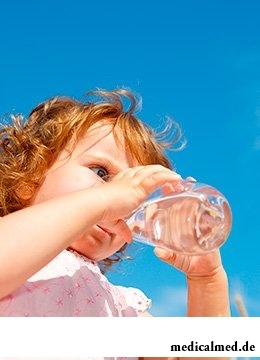 Treatment of dehydration of an organism assumes the constant use of water, but at loss of electrolytes it is necessary to fill shortage of sodium and potassium. For recovery of salts there are such special structures as глюкосолан or цитраглюкосолан which can be applied both to prevention, and at slight dehydration. It is recommended to add to drinking water a little salt in time or after heavy exercise stresses. However such method is considered effective only in case of the use big quantity of drink during the day.
Treatment of dehydration of an organism assumes the constant use of water, but at loss of electrolytes it is necessary to fill shortage of sodium and potassium. For recovery of salts there are such special structures as глюкосолан or цитраглюкосолан which can be applied both to prevention, and at slight dehydration. It is recommended to add to drinking water a little salt in time or after heavy exercise stresses. However such method is considered effective only in case of the use big quantity of drink during the day.
When deficit of liquid leads to a considerable lowering of arterial pressure that poses a threat for life, the solutions containing sodium chloride are intravenously entered. Besides, for treatment of dehydration of an organism it is necessary to remove the cause which provoked it. For example, at diarrhea, except recovery of the necessary amount of water, it is necessary to accept the drugs adjusting a chair. If kidneys remove a lot of water, perhaps, treatment is required by synthetic hormone.
After elimination of the reason of dehydration of an organism it is necessary to monitor consumption of liquid and not to allow a recurrence. For this purpose the adult is recommended to drink at least 2-3 l of water daily, especially in hot time and at considerable exercise stresses.
The American scientists made experiments on mice and came to a conclusion that water-melon juice prevents development of atherosclerosis of vessels. One group of mice drank usual water, and the second – water-melon juice. As a result vessels of the second group were free from cholesteric plaques.

Doctors claim that the people not so familiar with a dorsodynia occur among adult Russians very seldom. At the same time подавляющ...
Section: Articles about health
To look healthy and means well-groomed not only to be pleasant to people around, but also to feel strong, sure and taken place. Specialists in the field of cosmetology quite often note that whether not all women are able to look after skin...
Section: Articles about health
An eye of the person daily experiences considerable strain. The problem of preservation of sight is for many years directly connected with a question of supply of tissues of eye enough oxygen and nutrients. This task is carried out by small vessels – capillaries. For normal functioning of the visual device extremely important that they kept the integrity, but it works well not always. Microtraumas of eye vessels during which there are small hemorrhages it is extraordinary расп...
Section: Articles about health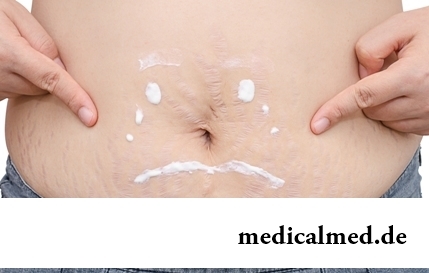
Striya (extension) are the defects of skin having an appearance of direct or wavy strips from 1 to 10 cm long and 1-5 mm wide. In the majority with...
Section: Articles about health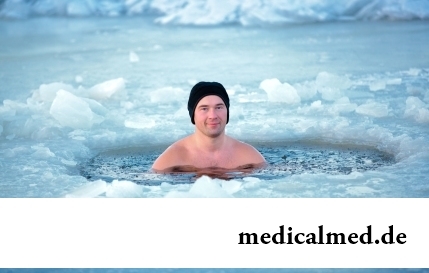
The winter swimming in open reservoirs called in our country by "winter swimming" – officially recognized sport and one of the most extreme ways of a hardening of an organism. This occupation has an old story and adherents in many countries. Are annually carried out...
Section: Articles about health
The summer of this year in Russia was very ambiguous. Regions suffered from a merciless heat, from pouring rains, the hail from time to time dropped out, then there was again a heat which alternated with rainfall again. Many people suffer from such sharp changes of weather. Even flu epidemics and a SARS were recorded....
Section: Articles about health
One of the useful properties presented to the person by the nature is ability to feel fear. This ability is called a signal...
Section: Articles about health
Feeding by a breast - the integral part of ideal motherhood allowing to come into contact with the kid and to create to it healthy immunity since early years. Nevertheless, this important process in life of mother and child can be saddened laktostazy − by a delay of milts...
Section: Articles about health
Cellulitis - very widespread cosmetic shortcoming which arises approximately at 80% of women sooner or later. Emergence it is connected with change of structure of a hypodermic fatty layer. At the same time on the surface of skin at first there are roughnesses (cambers and cavities), and then small consolidations, the so-called effect of an orange-peel is shown. Changes in a condition of hypodermic cellulose are a consequence of a hormonal imbalance in an organism....
Section: Articles about health
Each person supports all life a SARS about 200 times. The peak of incidence falls on cold season, but to get sick from temperatures...
Section: Articles about health
Olive oil – the product capable to make a powerful contribution to health of the person if it includes it in the diet. The rich vitamin composition of oil does it by a product number one from many diseases including from deadly. Only two tablespoons...
Section: Articles about health
It would seem, to buy drugs in Moscow does not make a problem – a drugstore, and not one, is available for each resident of the capital within walking distance. And, nevertheless, Internet drugstores become more popular – what it is possible to explain such phenomenon with? Actually there is a lot of reasons and if to formulate them it is short, then the most suitable word will be - "conveniently". We suggest to get acquainted in more detail with pluses and minuses of online drugstores that buying drugs, not to make the wrong choice....
Section: Articles about health
Within several decades of our compatriots convinced that the use of butter nasty affects on...
Section: Articles about health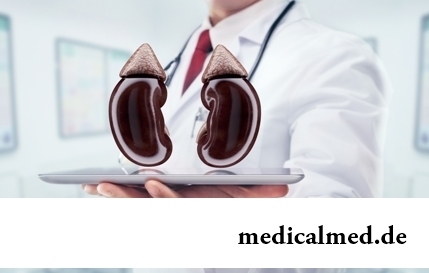
Kidneys perform the most important function of clarification of blood from those products of metabolic processes which cannot be used by an organism for obtaining energy and construction of new cells. With the urine produced by kidneys from a body of the person bulk is removed...
Section: Articles about health
At this plant there are a lot of names: tuberiferous sunflower, Jerusalem artichoke, solar root, earth pear. Contrary to popular belief, it is not an exotic plant at all. The wild girasol grows in a midland of Russia practically everywhere: at the edges of roads, to slopes of ravines, on heathlands. Also several cultural versions different from wild plants are removed by larger and juicy root crops....
Section: Articles about health
Tea is loved and use almost everything. This drink has tonic properties, contains the tannins capable podavlit...
Section: Articles about health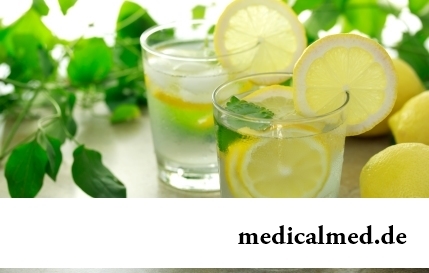
Water with a lemon - idle time in preparation drink which supporters of a healthy lifestyle already managed to appreciate. Used in a warm look and on an empty stomach, it is one of the most useful prophylactics allowing to prevent tens з...
Section: Articles about health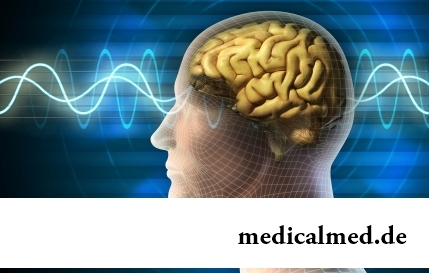
The brain of the person is studied not one hundred years, but the quantity of the riddles connected with this body increases rather, than decreases. Perhaps, numerous delusions concerning a structure and functioning of a brain are explained by it, many of which arose long ago, but continue to exist and today. Such we are ready to acquaint readers with the most widespread myths....
Section: Articles about health
Each person has easy indispositions which he transfers "standing", trying not to ask for medical care. Argu...
Section: Articles about health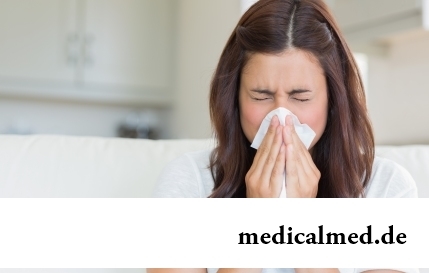
Practice of use of table salt in the therapeutic purposes contains not one century. Applications which do by means of the fabric impregnated with saline solution are considered especially effective. They possess antibacterial and antiinflammatory эффек...
Section: Articles about health
All of us, unfortunately, should face flu nearly an every year. It would seem, so frequent disease has to be studied already up and down, and each person, at least once to them had (and the number of such people in our country aims at 100%), has to know the basic rules of its treatment. However as shows experience of doctors, there is no it, and often people, self-confidently thinking what is known as it is necessary to be treated, make mistakes....
Section: Articles about health
Not without reason doctors say that 90% of diseases begin or develop because of misoperation of intestines. Disturbance of its functions связ...
Section: Articles about health
More than a half of the married couples which faced prostatitis – leave. The new broadcast "Female View of Prostatitis" will help to learn – whether you have or your relatives problems....
Section: Articles about health
Impossibility to conceive the child – a trouble of many Russian families. During quite long time was considered that main "culprits" of troubles such are women. Modern physicians claim that the situation is different: about a half of failures in attempts of reproduction are connected with male infertility....
Section: Articles about health
The business lady, the become mother, it is necessary to solve an array of problems. But of them is main: how to combine the beloved child and work?...
Section: Slideshow
According to doctors, more than a half of men of 25-50 years suffer from frustration of the urinogenital sphere, but the minority sees a doctor from them. And in vain - even the insignificant discomfort in the field of generative organs can serve as a symptom of an illness fraught heavy посл...
Section: Articles about health
Iodine - one of thirty most important microelements in our organism. The main role of iodine consists in synthesis of thyroid hormones of a thyroid gland - the substances which are responsible for the majority of exchange processes of an organism. It is known that thyroid hormones consist of iodine more than for 65%. The lack of iodine leads to decrease in production of hormones and, as a result, development of a hypothyroidism. The long condition of deficit can become a source of problems of the cardiovascular, bone, digestive SI...
Section: Articles about health
